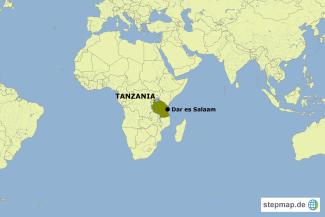Work
Female bus conductors on the rise

Women still face multiple challenges in the workplace despite this recent development. Female bus conductors must adjust to work schedules which contradict with their social lives and even put up with rejection from hardline traditionalists who resent their choice of career.
“My day at work starts at 5 o’clock in the morning and ends at 8 o’clock in the evening. It is not the hours that are stressful but rather the challenges I face as a female bus conductor because people are not used to us. Sometimes, I come across rude male passengers who want to take advantage of the fact that I am woman,” Rachel says.
She recalls an incident where one passenger refused to pay her the bus fare, claiming that he had already paid. He did not produce a ticket to prove his claims, rather, he bullied her simply because she was a woman. Such male bus passengers use their masculinity to psychologically and sometimes—physically intimidate women.
The challenges notwithstanding, female bus conductors receive support from family and friends, as well as professional bodies advocating for gender equality. The bus conductor’s job is largely informal, attracting mainly uneducated and poor people who are willing to work for a minimal wage. They have no job security and often hop from one employer to another depending on the availability of work shifts.
Rachel only managed to complete primary school education, and although she has always wanted to be a bus conductor. She also admits that she never had too many options in the job market. “Before I became a bus conductor, I ran various small businesses and prior I had worked as farmhand for a Unilever tea plantation in Mufindi, Iringa region (Southern highlands of Tanzania) where I hail from. I also worked as a cook and waitress in several small hotels back home,” she says.
Bus drivers and conductors in Tanzania rarely have a monthly salary. They must accept what remains off the bus owner’s daily allocated quota. With the current unprecedented rise in fuel prices, Rachel takes home between 8,000 and 15,000 Tanzanian shillings a day (between 3 and 6 Euros). “It is not as good as it was before hikes in fuel prices but still, I love what I do,” she adds.
She has one day off in a week and since her daily schedule is demanding, she has had to send her children to a boarding school. “Both my parents are dead, I have some relatives, but we are not that close, and I didn’t want to burden them with the care of my children while I am at work,” she says.
The deputy chairman of the Bus Drivers and Conductors Association at the Mbezi Luis bus stand on the outskirts of Dar es Salaam, Abdulrahman Mpanda, says that more female food vendors at the terminal are joining public transport to work as conductors, drawing inspiration from those already working in sector. Their bus stand now has five female conductors.
Kilasa Mtambalike is freelance journalist, media and PR consultant in Dar es Salaam.
kmtambalike@yahoo.com









